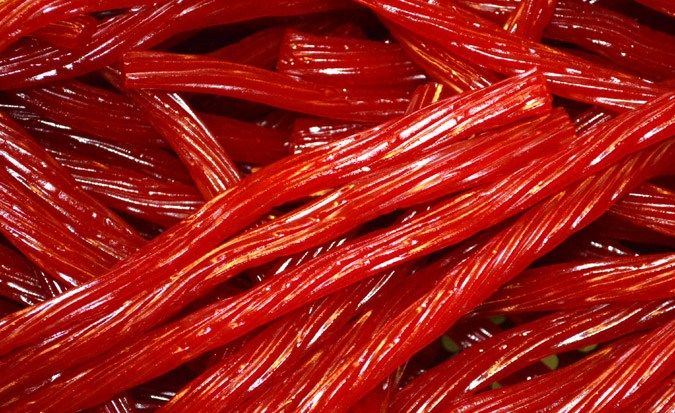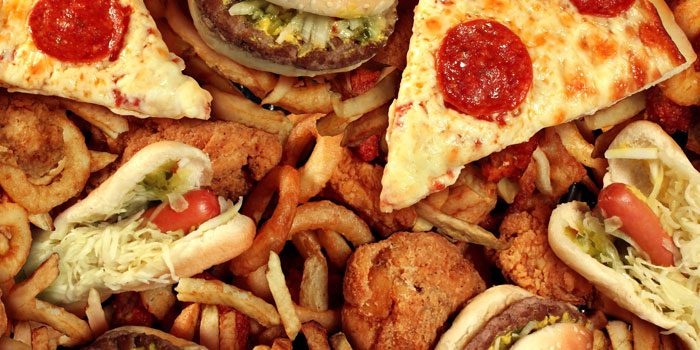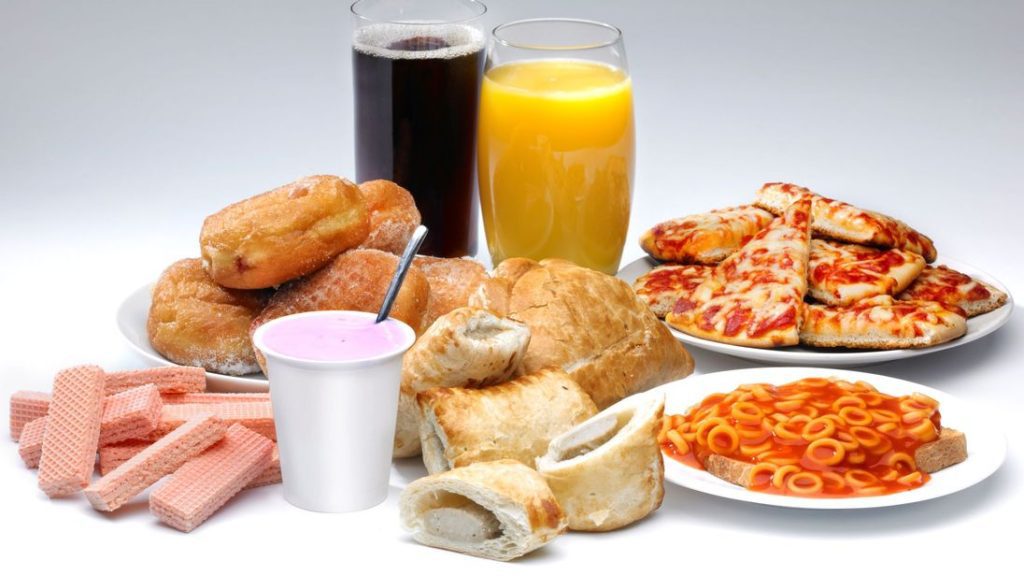While there are many nutritious foods out there that can enhance your natural testosterone production, there are others with the complete opposite agenda.
Consuming more of the foods that enhance your natural testosterone production isn’t enough sometimes.
There are roughly the same amount of consumables out there that deter you from getting enough testosterone production.
In this article, we’ll go over why you don’t want to lose your testosterone, the benefits of actually having a high testosterone, and the top foods to avoid due to the fact that they decrease your normal testosterone production.
If you’re ready to munch on some solid information, let’s go!
Why No Man Wants to Decrease Their Testosterone
Afraid of stating the obvious, decreasing testosterone is one of the absolute LAST things you want to do as a male.
When your testosterone production starts to deteriorate, you start to recognize some serious side effects, including:
- Decreased sex drive or libido
- Limited sperm production
- Loss of muscle mass and strength
- Increased fat
- Reduced bone density
- Less red blood cell production
- Erectile dysfunction or infertility
- Decreased body hair
- Increased fatigue
- Sleep apnea
- Emotional changes like depression, anger, and loss of memory and concentration
Also, your cholesterol metabolism is affected, as well as put you at risk for other harmful diseases, including thyroid conditions, problems with your pituitary gland, Type 2 diabetes, and testicular issues.
Benefits of More Testosterone
In contrast, having more testosterone offers a slew of benefits for all males:
- Body fat is decreased
- T fights off depression and mood swings
- Muscle mass is increased
- Your heart and bones are strengthened
- Libido is ramped up
- There’s a smaller risk of Alzheimer’s
- Cognition is boosted
- Enhanced competitiveness, risk taking, and lust for power
However, in a nutshell, there is a very high threshold for where testosterone production starts to become a problem.
Therefore, it makes sense to up your testosterone levels until you begin to see side effects of too much, such as aggression, acne, testical shrinkage, and high red blood cell count.
Foods That Lower Testosterone
For each food, we’ll dive into the chemistry of the source and why it adversely affects your natural testosterone production when you consume it.
1. Soy

Soy products have always had a bad rap with men. The science backs this rap up.
The legume contains a high amount of what’s called “phytoestrogenic isoflavones,” which mimics estrogen activity within your body.
The “phyto” means it’s derived from the plant, resulting in the fact that every soy product in existence has these isoflavones that activate your body’s estrogen receptors.
Of course, estrogen is the exact opposite hormone of testosterone.
Want to keep your estrogen levels in check? Check out this article about estrogen blockers here.
Although these isoflavones are less potent than the actual hormone estrogen, it can downregulate the androgen receptors in your body.
These receptors are crucial for the development and maintenance of the male sexual phenotype.
Also, soy can mess with your iodine uptake in the thyroid, causing thyroid hormone production to be disrupted.
This means soy is “goitrogenic,” making it severely anti-thyroid. A suppressed thyroid is one of the major causes of low testosterone in men and women.
The bad fatty-acid ratio in soybeans are another reason why men should avoid them.
More than 50% of the fat content in soy is from PUFAs (polyunsaturated fatty acids), which are notorious for increased insulin and blood sugar, as well as an impaired digestion and immune system.
While research isn’t 100% clear on the causation of soy and the decrease in testosterone, the studies that have occurred are enough to keep all Athletic Muscle men away from soy.
Thankfully, it’s an easy food to avoid: Swap soy products for a healthier nut or dairy if you can stomach it. If not, hemp milk and other hemp products might be worth a try.
2. Mint

This includes all forms of mint, such as peppermint, spearmint, and other hybrids.
While mint is prevalent in cooking, it’s also used in a ton of household and personal care products, like shampoos, soaps, cough relievers, and toothpaste.
The reason why you’d want to avoid heavy doses of mint as a male is that there have been studies conducted on other groups that suggest it could reduce your testosterone production.
There have been some animal studies, and at least one human study on women with high androgen receptors, where it showed to reduce levels of testosterone significantly for women suffering from hirsutism (excessive facial hair growth).
None of these are human male studies that definitively correlate reduced testosterone with mint, but it holds enough weight to see how types of mint can have adverse effects on our androgen receptors.
If anything, limit the total amount of mint and mint hybrids you consume on a daily basis and you should be in the clear.
3. Licorice

Though it might seem like an oddball on this list, licorice is a terrible food source when it comes to maintaining healthy levels of testosterone.
The main culprit is one compound found in licorice: glycyrrhizic acid. It’s the reason why licorice tastes good; it’s also the reason why it blocks testosterone production.
How it does this is by inhibiting a specific enzyme in the body (17β-HSD) in Leydig cells that serves as a primary catalyst in testosterone production.
Lucky for you, in just four days of not consuming licorice, your testosterone levels can return back to baseline. Simply avoid licorice.
Sweeten your food with other healthy versions of sweet.
4. Vegetable Oils

At this point, refined vegetable cooking oils should be banned.
Not only do they have one of the lowest smoking points among cooking oils, they’re also stripped of micronutrients, can have trace amounts of sulfates, and – yes – even spell havoc for your testosterone production.
Vegetable oils have some of the highest levels of PUFAs, which (as we’ve seen from above) are the villains of natural testosterone.
Studies have found that increased total fat intake boosts testosterone and increased saturated fatty-acids improve testosterone and more intake of monounsaturated fatty-acids enhance levels of testosterone.
However, PUFAs reduce T levels, and the majority of vegetables have these fatty-acids, especially the inflammatory omega-6 fatty-acids.
In terms of overall health, the ratio between omega-3 and omega-6 fatty-acids is incredibly important.
While it should be 1:1 or 1:2, the average American eats 16 times more omega-6 fatty-acids than omega-3s (1:16). This boosts inflammation and oxidative stress, which is how we age and feel terrible.
Plus, one of the likely results of a high omega-6 diet is decreased testosterone production.
When the omega-6 content of sperm is especially high, the chances that particular male is infertile skyrockets.
In short, don’t touch high-PUFA vegetable oils. Find cooking oils that are instead high in saturated fatty-acids and monounsaturated fatty-acids, like coconut oil, palm oil, avocado oil, and olive oil.
Butter is also a wonderful substitute.
5. Nuts

Sad to say, some nuts could potentially reduce your natural production of testosterone.
Now, not all nuts are bad. But some of the more popular kinds – like almonds and walnuts – are known to increase SHBG levels, which stands for sex hormone-binding globulin.
SHBG binds to free testosterone and essentially renders inactive the bioavailability of androgen receptors.
In layman’s terms, it takes the testosterone you have made naturally and shuts it down.
Plus, many nuts are high in PUFAs (basically the testosterone devil incarnate at this point).
Lastly, nuts are high in phytosterols, which helps maintain a healthy heart but also interferes with your steroid hormone production (i.e. testosterone).
Here are some nuts that are safe for you to consume without screwing up your omega-3 / omega-6 ratio and are low in PUFAs:
- Macadamias
- Cashews
- Pecans
Of course, you should still limit your total consumption of nuts daily.
6. Flaxseed

Flaxseed oil and other flax products are extremely high in omega-3s, there are enough negative effects with testosterone that all men should avoid this currently-trendy superfood.
Flax is dense with lignans, which does, among other things:
- Inhibits the conversion of testosterone to the more potent Dihydrotestosterone;
- Reduces total testosterone levels;
- Increases SHBG levels, which renders free testosterone inactive.
Flaxseed products reduce natural testosterone in the body, as studies involving women suffering from hirsutism cas attest to, as well as studies on males with additional flax consumption.
This is one trend to avoid completely if you’re a male at risk for low testosterone.
The cool thing is, you can effectively limit your flax ingestion by using eggs in baking and using other seeds for toppings. As for cooking, choose other oils low in PUFAs.
7. Alcohol

We know this one hurts a few of us guys, but after reading this you’ll probably reconsider those weekend benders.
Alcohol is known to decrease levels of testosterone in men, but it’s really the dosage of alcohol that makes it a terrible substance to consume.
There is a strong correlation between amount of alcohol and testosterone reduction in human males.
Chronic alcoholics typically have higher estrogen levels and low testosterone levels.
However, limited amounts of alcohol might actually be beneficial to testosterone production.
If you want proof, there was a study from Finland in 2013 that showed that drinking the equivalent to half a glass of vodka immediately after a resistance training workout can boost testosterone by roughly 100%.
This one seems simple, but it bears repeating: Don’t drink to excess. Your testosterone will thank you.
8. Trans Fats

If you’ve ever heard of trans fats, then the next thing you know is that they aren’t good for you. At all.
They are a byproduct of what’s called “hydrogenation,” which is where raw oil is hardened by putting high-pressure hydrogen through the oil.
The reason why it’s high-pressure is because nickel is present; nickel acts as an alkaline catalyst for this process.
This whole process changes carbon bonds into trans bonds.
These trans bonds promote high inflammation in the body and are high in those damned PUFAs.
So, foods that are high in trans fatty-acids – hydrogenated vegetable oils, margarine, fast food, some potato chips, muffins, donuts, cakes, and frostings – are awful for your testosterone production.
The obvious answer is to eliminate trans fats from your diet as much as possible. Steer clear of processed food, certain baked goods, and anything that has gone through hydrogenation.
9. Fried Foods

If you haven’t noticed a theme in the foods we’re mentioning in this list, you will now: Fried foods are extremely high in unhealthy PUFAs and sodium.
Polyunsaturated fatty-acids are an absolute nightmare for your body’s production of testosterone. However, the salt provides a new form of testosterone blunting.
Excess sodium leads to hypertension and high blood pressure, which is one of the leading causes of erectile dysfunction.
In the same thread as trans fats, vegetable oils, and nuts, block out as many fried foods as you can. Grilling, baking, and roasting can preserve your libido and sex life for years to come.
10. Processed Foods

The sheer number of processed foods out there is borderline astronomical. Of course, the “process” we are talking about it pumping foods full of hormones and antibiotics.
These can affect your testosterone adversely, especially at a young age.
These foods should never be consumed, ever.
The other side effects can prove detrimental to your brain and other parts of your body, not just your testosterone production.
So opt for organic or zero-additive foods when grocery shopping. It just might save your life.
11. Sugar

Last on our list is one of the most dangerous chemicals out there that’s 100% legal and crammed down our throats on an hourly basis.
Yes, sugar plays a massive role in screwing up your testosterone levels.
Not only does the average American consume 19.5 teaspoons of added sugar daily (more than double the recommended amount), heavy sugar intake also shuts down testosterone production and produces belly fat, another testosterone inhibitor.
Problem is, sugar is in almost everything.
The trick is to look at the nutritional information. Limit the amount of foods you consume that has added sugars. (And sugar has numerous names, including high fructose corn syrup, fructose, dextrose, corn syrup, etc.)
This might be the hardest thing to limit, but when you do, you’ll notice your testosterone coming back to a healthy level.
Conclusion
While there are many foods out there that hinder your natural testosterone production, not all is lost.
Now that you’re equipped with a list of what deters testosterone, you can work on eliminating these foods from your daily diet.
The side effects of decreased testosterone matches the benefits of increased testosterone, exponentially boosting the importance of keeping your sex hormone levels high.
Find ways to substitute the foods on our list with less-harmful foods and your testosterone will be saved.
Eat, be merry, and increase your T!

